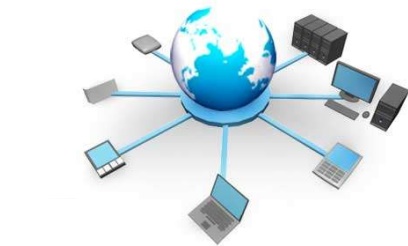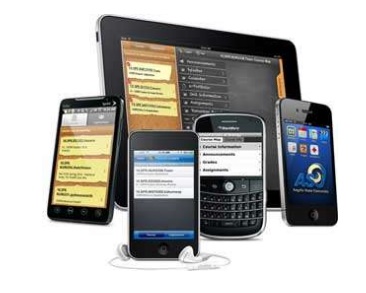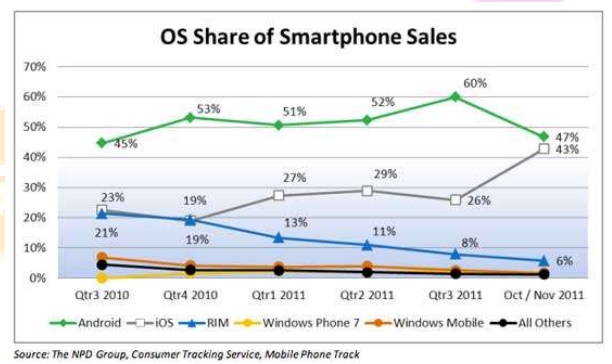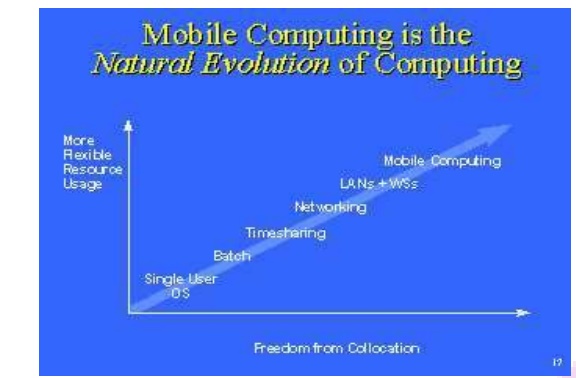Chapter: Mobile Computing
Mobile Computing
MOBILE COMPUTING
Mobile Computing is a technology that
allows transmission of data, voice and video via a computer or any other
wireless enabled device without having to be connected to a fixed physical
link.
Mobile
Computing is the use of portable computing devices (such as laptop and handheld
computers) in conjunction with mobile communications technologies to enable
users to access the Internet and data on their home or work computers from
anywhere in the world.
It is the
process of computation on a mobile device. In mobile computing, a set of
distributed computing systems or service provider servers participate, connect,
and synchronise through mobile communication protocols.
Mobile
computing is a generic term describing ability to use the technology to
wirelessly connect to and use centrally located information and/or application
software through the application of small, portable, and wireless computing and
communication devices. It provides decentralized (distributed) computations on
diversified devices, systems, and networks, which are mobile, synchronized, and
interconnected via mobile communication standards and protocols. Mobile device
does not restrict itself to just one
application,
such as, voice communication.
The main
concept involves −
·
Mobile communication
·
Mobile hardware
·
Mobile software
Mobile
communication
The mobile communication in this case, refers to
the infrastructure put in place to ensure that seamless and reliable
communication goes on. These would include devices such as protocols, services,
bandwidth, and portals necessary to facilitate and support the stated services.
The data format is also defined at this stage. This ensures that there is no
collision with other existing systems which offer the same service.

Since the media is unguided / unbounded, the
overlaying infrastructure is basically radio wave-oriented. That is, the
signals are carried over the air to intended devices that are capable of
receiving and sending similar kinds of signals.
Mobile Hardware
Mobile
hardware includes mobile devices or device components that receive or access
the service of mobility. They would range from portable laptops, smart phones,
tablet Pc's, Personal Digital Assistants.

These
devices will have a receptor medium that is capable of sensing and receiving
signals. These devices are configured to operate in full- duplex, whereby they
are capable of sending and receiving signals at the same time.
They
don't have to wait until one device has finished communicating for the other
device to initiate communications. Above mentioned devices use an existing and
established network to operate on. In most cases, it would be a wireless
network.
Mobile software
Mobile
software is the actual program that runs on the mobile hardware. It deals with
the characteristics and requirements of mobile applications. This is the engine
of the mobile device. In other terms, it is the operating system of the
appliance. It's the essential component that operates the mobile device.

Since
portability is the main factor, this type of computing ensures that users are
not tied or pinned to a single physical location, but are able to operate from
anywhere. It incorporates all aspects of wireless communications.
Evolution of Mobile Computing
In today's computing world, different
technologies have emerged. These have grown to support the existing computer
networks all over the world. With mobile computing, we find that the need to be
confined within one physical location has been eradicated. We hear of terms
such as telecommuting, which is being able to work from home or the field but
at the same time accessing resources as if one is in the office.
The
advent of portable computers and laptops, Personal Digital Assistants (PDA), PC
tablets and smart phones, has in turn made mobile computing very convenient.
The portability of these devices ensure and enable the users to access all
services as if they were in the internal network of their company. For example,
the use of Tablet PC and iPads. This new technology enables the users to update
documents, surf the internet, send and receive e-mail, stream live video files,
take photographs and also support video and voice conferencing.
The
constant and ever increasing demand for superior and robust smart devices has
been a catalyst for market share. Each manufacturer is trying to carve a niche
for himself in the market. These devices are invented and innovated to provide
state-of-the-art applications and services. For instance, different
manufacturers of cellular phones have come up with unique smart phones that are
capable of performing the same task as computers and at the same processing
speed.
The
market share for different competitors is constantly being fought for. For
example, the manufacturers of Apple's iPhone OS, Google's Android' Microsoft
Windows Mobile, Research In Motion's Blackberry OS, are constantly competing to
offer better products with each release.
The need
for better, portable, affordable, and robust technology has made these vendors
to constantly be innovative. Market figure and statistics show an ever growing
need to purchase and use such devices for either professional or personal use.
It is in this light that services to suit long-term implementation are developed
or innovated. It has also pushed other industry vendors to adopt services that
will provide better services.
For
example, cellular service providers are forced to improve and be innovative to
capture more subscribers. This can be in terms of superior services such as
high speed internet and data access, voice and video service etc. Hence the
adoption of different generations of networks like of 2G, 2.5G, 3G, 4G network
services.

The
essence of mobile computing is to be able to work from any location. The use of
iPads, tablets, smart phones, and notebooks have pushed the demand for these
devices. Modern day workers have such devices that enable them to carry out
their work from the confines of their own location. These devices are configured
to access and store large amounts of vital data.
Executive
and top management can take decisions based on ready information without going
to the office. For example, sales reports and market forecasts can be accessed
through these devices or a meeting can take place via video or audio
conferencing through these devices. With such features being high in demand,
manufacturers are constantly coming up with applications geared to support
different services in terms of mobile computing.

Advantages of Mobile Computing
Location Flexibility
This has
enabled users to work from anywhere as long as there is a connection
established. A user can work without being in a fixed position. Their mobility
ensures that they are able to carry out numerous tasks at the same time and
perform their stated jobs.
Saves Time
The time
consumed or wasted while travelling from different locations or to the office
and back, has been slashed. One can now access all the important documents and
files over a secure channel or portal and work as if they were on their
computer. It has enhanced telecommuting in many companies. It has also reduced
unnecessary incurred expenses.
Enhanced Productivity
Users can
work efficiently and effectively from whichever location they find comfortable.
This in turn enhances their productivity level.
Ease of Research
Research
has been made easier, since users earlier were required to go to the field and
search for facts and feed them back into the system. It has also made it easier
for field officers and researchers to collect and feed data from wherever they
are without making unnecessary trips to and from the office to the field.
Entertainment
Video and audio recordings can now be streamed
on-the-go using mobile computing. It's easy to access a wide variety of movies,
educational and informative material. With the improvement and availability of
high speed data connections at considerable cost, one is able to get all the
entertainment they want as they browse the internet for streamed data. One is
able to watch news, movies, and documentaries among other entertainment offers
over the internet. This was not possible before mobile computing dawned on the
computing world.
Streamlining of
Business Processes
Business processes are now easily available through
secured connections. Looking into security issues, adequate measures have been
put in place to ensure authentication and authorization of the user accessing
the services.
Some business functions can be run over secure
links and sharing of information between business partners can also take place.
Meetings, seminars and other informative services can be conducted using video
and voice conferencing. Travel time and expenditure is also considerably
reduced.
Disadvantages of Mobile Computing
Quality of
Connectivity
One of the disadvantages is that the
mobile devices will need either WiFi connectivity or mobile network
connectivity such as GPRS, 3G and in some countries even 4G connectivity that
is why this is a disadvantage because if you are not near any of these
connections your access to the internet is very limited.
Security Concerns
Mobile VPNs are unsafe to connect to,
and also syncing devices might also lead to security concerns. accessing a WiFi
network can also be risky because WPA and WEP security can be bypassed easily.
Power Consumption
Due to the use of batteries in these
devices, these do not tend to last long, if in a situation where there is no
source of power for charging then that will certainly be a let down.
Related Topics